Five leading distributors reveal where they see the biggest growth opportunities in the year ahead and set out their strategies for expanding their catalogues and growing their businesses
ENDEAVOR CONTENT
Endeavor Content executive vice-president of television distribution Prentiss Fraser expects new parent company CJ ENM to help super-charge her boutique slate
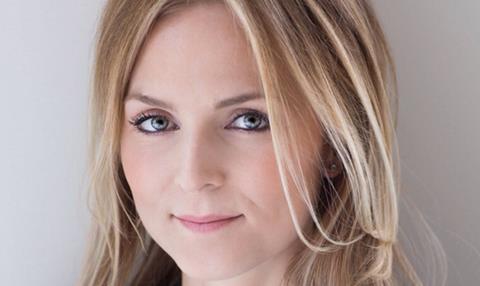
Following CJ ENM’s acquisition of Endeavor Content, there are exciting opportunities for us and our new parent company, such as making Korean versions of some of the shows that we represent. We could potentially take something we’re working on in the US, pair it with a famous Korean director and co-produce it together.
A specific strength of our content is established IP – titles that might be familiar through a novel, previous film or an earlier adaptation, for example. We’ve got Tokyo Vice, which is based on a novel, and Headhunters, a Nordic series based on a 2011 film, which was also based on a novel. Additionally, The Twelve, Conversations With Friends and Nine Perfect Strangers are all based on successful IP.
Our acquisitions and our own studio productions are focused on that premise and are all selling very well. There’s been so much uncertainty with life in general recently, and to have something that’s familiar is a comforting experience for consumers.
We have also picked up Cash In The Attic, which was in production in the UK for 18 years. There aren’t a lot of those reasonably priced titles that have been so well-produced over a long period of time internationally.

Formats is an area of the business we want to develop. Cash In The Attic is ‘best in category’ content and we want to make local versions in other territories. Through Andrew Glassman Media, we took on Spin The Wheel, which was the first format that came into the business, so we have the daytime and shiny-floor genres covered.
We are actively looking for a dating format, and overall probably want to have about five titles that cater to different areas of a broadcaster’s schedule.
Because our catalogue is very much boutique, we only move forward on partnering with a producer if we think we can add value. I don’t have that same pressure as some of my colleagues in other companies, who have to aggregate huge amounts of volume. We’re still very selective in our approach.
VICE MEDIA
Vice Media Group global head of distribution Bea Hegedus says her nascent sales division is hungry for content and keen to expand into scripted, entertainment and formats
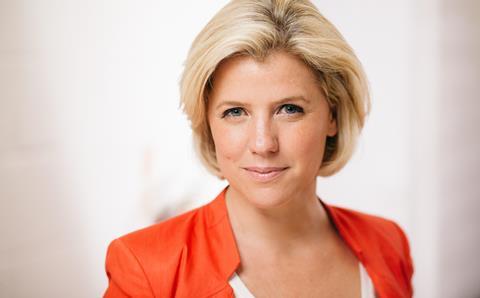
Vice Media’s distribution arm only launched during the pandemic, so we’re still expanding into more markets – I’m hiring people to cover Asia and our growing free ad-supported streaming TV (FAST) channels business, for example – and diversifying our revenue streams.
We’re selling to third-party platforms and networks; partnering with broadcasters and platforms that are targeting our viewers, who tend to be younger audiences. So our strategy is just to dial up the amount of content we have for distribution.
Vice Media chief exec Nancy Dubuc’s dream was always for us to become a premium content provider in the unscripted space, but now we are expanding into other genres, with scripted, entertainment and formats the priority. Buyers are really keen on ‘bikini reality’ and we have landed our first scripted commission in the US with Hulu’s Tell Me Lies.
All our unscripted developments are led by access to incredible stories, and while they naturally lend themselves to documentary, some of them could also work as dramas, particularly the very local stories. In documentary, buyers are looking for stories that resonate with their audiences. Converting some of these stories to scripted could bring out their universal nature.

Content packages, such as those we’ve sold recently to Viaplay and historically to SBS in Australia and Channel 4, help a great deal because they build trust. That naturally leads to all kinds of further partnerships or co-production opportunities – you have to play in the co-pro space or you’re not really doing your job.
Platforms are hungry so we constantly question ourselves on how we can feed the pipeline. We need to increase our catalogue, and that’s my biggest challenge. It’s a good challenge to have, giving us the chance to grow massively, so if producers have content that they feel is very ‘Vice’, they should talk to me.
All3Media International
All3Media International managing director Louise Pedersen sees opportunity in premium factual and scripted formats, but financing continues to be a challenge
Our factual approach is three-pronged: premium; long-running factual entertainment; and developing partnerships to feed the pipeline, such as through first-look deals.
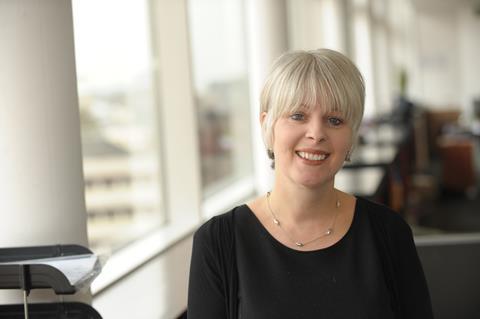
About 18 months ago, we weren’t active in the premium factual space, but we’ve identified it as a growth area and have recruited to make sure we can get into it. We’ve invested a lot of money into it and have done some good deals.
We’re interested in high-profile crime – true stories such as Who Is Ghislaine Maxwell?, where there is new evidence or a different take. They don’t necessarily have to be big international stories, but ones that resonate and have new material. You need a bigger budget for those shows because you’re effectively doing a complete investigation all over again.
History is another area of interest, particularly if there’s access to new footage. That’s why these shows become premium: access, footage, exclusivity and balance.
Another area picking up is scripted formats. We’re about to announce our seventh remake of Liar. That feels like a much bigger section of the market than a few years ago.
When looking at a scripted show, you’re valuing co-production deals and tape sales, but also considering whether you can add in a number for scripted formats as well. Typically, scripted formats come after the first two things because you don’t want to jeopardise your first-run tape sales. But that’s not true in markets where UK tape struggles – for example, some of the Asian markets might look to the scripted format first.

Funding is the perennial issue. Many of these shows in factual and scripted require a lot of money and cashflow. Working with producers to manage where that cash is coming from is something our team spends a lot of time doing – conversations with banks, financing partners and our own internal corporate finance people.
We’re lucky we have a supportive group who back us on these projects, but production costs are still going up. There’s huge inflation and not enough crew available. The PSBs are not increasing their commissioning fees at the same rate as the costs are going up, so it’s falling on the distributors to fill the gap. That is still a challenging situation.
Tax credits are a big part of funding, but so is who can co-produce and share the risk. One thing that differentiates us from many distributors is that we will take a risk and greenlight our portion of the funding, rather than shopping it around and waiting to bring in a co-producer. When our producers get a UK greenlight, they want to get on with making the show, so waiting to see whether you can raise the finance is stressful.
FREMANTLE INTERNATIONAL
Fremantle International chief executive Jens Richter expects English-language drama and high-end factual to drive his business this year, with entertainment remaining a key asset
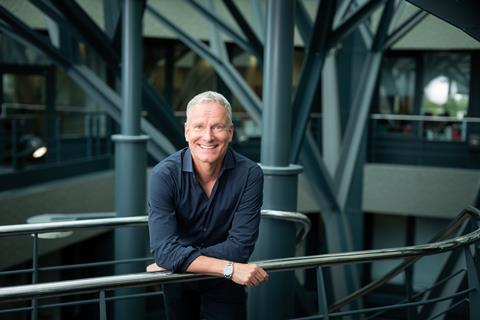
As we move towards a post-Covid era, we’re focusing on how we expand our business strategically, and that is done by building out the content pipeline, being involved in smart M&A activity and investing in talent.
It’s no secret that at the moment, the biggest thing is to work with the right talent and produce quality programming. When you have a show that is just okay, you have a problem. We’re going to be much more selective in 2022 than maybe two, three or four years ago.
We’re going to have the biggest English-language slate of drama by a mile this year. We’ve been planning that for more than two years, because the genre travels that additional inch further. We’re based in the UK and it can come from here, but we have also been active in Australia and should have some drama coming out of Canada – we are closing the financing soon.
We are also talking about US drama where we potentially get some distribution, but it’s hard to pick up US drama. When it’s about securing international distribution, the UK, Australia and Canada are very interesting places for drama.
Factual will be very much at our heart, with [former Storyville chief] Mandy Chang on board as global head of documentaries. What’s interesting in factual over the past two years is that premium shows such as Naked’s Planet Sex, hosted by Cara Delevigne, are selling into a much wider market. Two years ago, premium factual always went into public broadcasters – subscription pay-TV and the commercial players rarely got involved.

Pricing is also interesting. The money we can get for high-end factual has gone up quite dramatically over the past two or three years, so we are able to invest in bigger pieces knowing there’s a bigger market out there and we’ll be able to make that money back.
Entertainment remains Fremantle’s strongest foothold. At the end of last year, we acquired 12 labels from NENT Group to form production group This Is Nice, which is mainly entertainment-driven.
We also concluded our investment in US-Australian firm Eureka Productions, assuming full ownership, and we have some big new formats coming through there such as Parental Guidance, which we believe could be something new for the international market. It’s studio-based entertainment where we learn about the different educating styles of parents.
BEYOND RIGHTS
Beyond Rights’ newly appointed chief executive David Smyth has set about building the right mix of staff and targeting new business such as the FAST channels market
I only recently began my role at Beyond. The biggest disadvantage you have when you start somewhere new is that you’ve got no memory of what came before, so my biggest priority is to fill in the gaps as quickly as possible, which means familiarising myself with every member of the organisation and all of its systems.
Externally, it’s all about getting out there, meeting the producers and developing relationships of my own with them to deepen their overall relationship with Beyond.
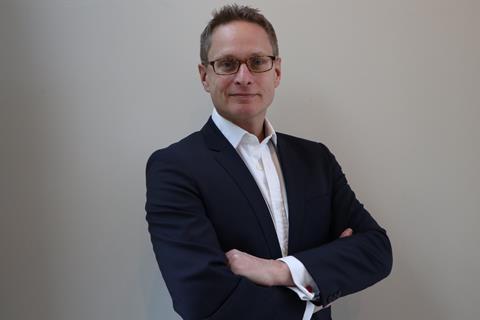
Any new chief executive that comes into an organisation wants to help shape the organisation to their viewpoint, so while no one ever wants to lose talented staff, I have the opportunity to really consider what feels like the best mix of talent. I want to build the team around me so everyone has a voice and is heard.
I’m certainly looking at bringing people inside the organisation to help us fill gaps, so I’m having discussions right now with a number of people about joining Beyond, but we haven’t made any decisions yet.
Looking ahead, we’re really fortunate that we have reliable long-running series like Highway Thru Hell in our catalogue, which are really cornerstones for us, but also for the channel brands we sell them to. In testing times, when that flow of new content has been disrupted, to be able to call on reliable franchises is useful. In the immediate term, we’re expanding our offering in those areas as well.
In the longer term, we’ve all recognised the pandemic has accelerated changes in viewing behaviour that were already under way. To be able to keep pace with audience demand is something I’m focused on, and I’m fixated on what those audience movements are going to look like over the next two to three years.
It’s all well and good being able to see what they are today, but to be able to predict what the changes are going to be is a central plank of our strategy.
I’d love us to do more scripted, which is my background, but not at the expense of anything that we’re already doing very well. We’ll stay focused and add genres to our catalogue if we can. We’re very open-minded about how we achieve scale.
The opportunity that AVoD represents is very attractive, and its growth prospects are all appealing, as consumers want to watch great content for free.

We are fortunate to have a catalogue that lends itself to the licensing in that space. The audiences can be very broad, and that allows you to target different segments within that overall mix. Whether you are interested in engineering, history or lifestyle, there are clearly destinations that you can go to for that content.
When distributors have looked at the AVoD and FAST channel markets, they’ve seen it as a non-exclusive licensing space. That might change before too long, and on the heels of that would be original content.
That could be a very interesting opportunity for people in our position, because it’s an opportunity for producers to make content and possibly retain more rights, which is quite challenging when you’re licensing to the big streamers. It’s not going to nibble away at the share of SVoD, but there’s plenty of room for experimentation and innovation.




















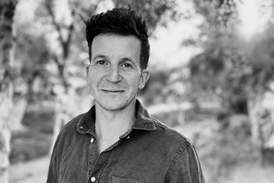









No comments yet